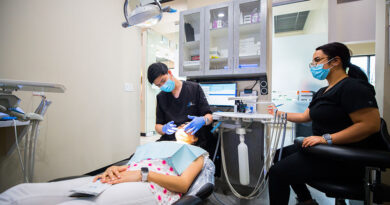Liver Love: Everyday Routines for a Happy, Healthier Liver
One of the body’s most important organs, the liver frequently functions in the background to maintain our health. It carries out a wide range of tasks, such as generating bile for digestion, detoxifying dangerous compounds, and controlling metabolism. It’s critical to maintain our liver in top health because of its vital job. A happier and healthier liver as well as general well-being can result from forming regular routines that promote liver health. Here are some regular habits that will help you take better care of your liver.
Daftar Isi
1. Maintain Hydration
Almost all body processes, including liver health, depend on water. Maintaining adequate hydration aids in the liver’s more effective removal of waste and poisons. Try to have eight glasses of water or more each day. Herbal teas that are said to improve liver function, like milk thistle or dandelion, are another option. Refrain from consuming sugary or caffeinated drinks in excess as this can put further strain on the liver.
2. Consume a Well-Rounded Diet
The health of your liver depends on eating a balanced diet. Make an effort to include a range of nutrient-, antioxidant-, and fiber-rich foods. Leafy greens with lots of vitamins and minerals, like kale and spinach, help the liver operate. Broccoli and Brussels sprouts, among other cruciferous vegetables, contain chemicals that may aid in liver detoxification. Antioxidants included in fruits like apples and berries help to prevent oxidative stress.
Include good fats in your diet as well, like those in nuts, avocados, and olive oil. Fatty fish, such as salmon, are high in omega-3 fatty acids, which can help lessen inflammation in the liver. Legumes and whole grains are also great sources of dietary fiber, which lowers the risk of fatty liver disease, helps control blood sugar levels, and facilitates digestion.
3. Limit Your Consumption of Alcohol
One of the most prevalent substances that can have a detrimental effect on improve liver health function is alcohol. Although alcohol is metabolized by the liver, heavy drinking can overwhelm this process and cause damage to the liver, such as cirrhosis, hepatitis, and fatty liver disease. If you decide to drink, make sure it’s moderate. For women, the suggested daily maximum is one drink, and for men, it is two drinks.
4. Exercise Frequently
Frequent exercise enhances general metabolic performance and helps maintain a healthy weight, both of which are advantageous for liver health. A major risk factor for non-alcoholic fatty liver disease (NAFLD), a disorder where the liver accumulates fat, is obesity. On most days of the week, try to get in at least 30 minutes of moderate exercise, including brisk walking, cycling, or swimming. For optimal effects, mix in both aerobic and strength-training activities.
5. Obtain Enough Rest
Good sleep is crucial for liver function as well as general health. The liver performs cleansing and repair functions while you sleep. Try to get between seven and nine hours of sleep each night so that your body and liver can recuperate. In addition to having a detrimental effect on liver function, poor sleep habits including sleep deprivation or irregular sleep patterns can also lead to weight growth and metabolic problems.
6. Steer clear of OTC pain relievers.
Acetaminophen (Tylenol), an over-the-counter drug, can strain the liver if taken excessively or in high amounts. Don’t mix them with alcohol and always take them as directed. If you require pain management, think about less hepatic-taxing solutions and speak with your doctor about safer choices.
7. Handle food safely.
Foodborne infections can be detrimental to one’s general health and liver function. Make sure you handle food correctly to prevent contamination. To stop bacteria from growing, wash fruits and vegetables well, cook meats to the right temperature, and refrigerate food properly. Lowering your chance of infections and illnesses that might harm your liver is another way to keep it healthy.
8. Decrease Your Toxin Exposure
Reduce your exposure to chemicals and contaminants in the environment that can strain your liver. This entails limiting your exposure to cigarette smoke, pollution, and household toxins. Use protective gear and take the necessary precautions if you work in an environment where you could be exposed to hazardous substances.
9. Control Your Stress
Prolonged stress can affect how well the liver functions by causing inflammation and even encouraging bad habits like binge eating or drinking too much alcohol. Seek out stress-reduction strategies that work, like mindfulness, meditation, or relaxing pastimes. Stress levels can also be managed by engaging in regular exercise and leading a healthy lifestyle.
10. routine check-ups with the doctor
See your doctor on a regular basis to assess liver health and identify any potential problems early. It’s especially crucial to maintain regular tests and heed your doctor’s advise if you have pre-existing diseases or a family history of liver disease, which are risk factors for the disease.
You can help your liver do what it does best—support liver function—and keep your body healthy by implementing these everyday practices. Recall that having a strong liver makes you happier and healthier overall. By engaging in these routines, you can show your liver some love and receive increased health and vitality in return.



